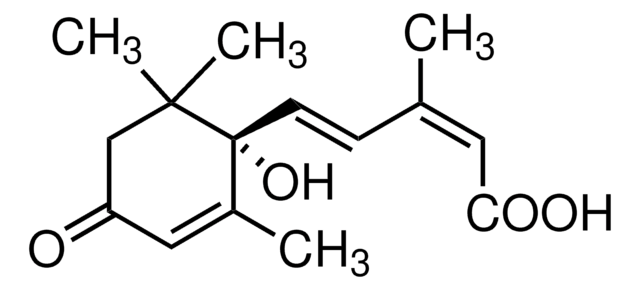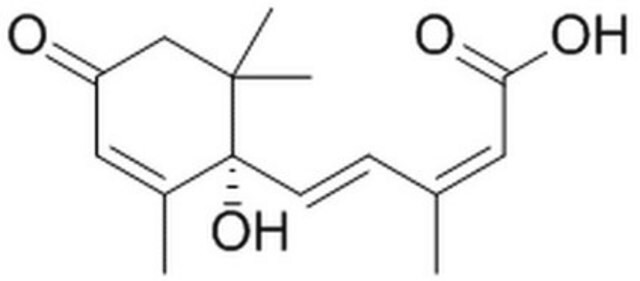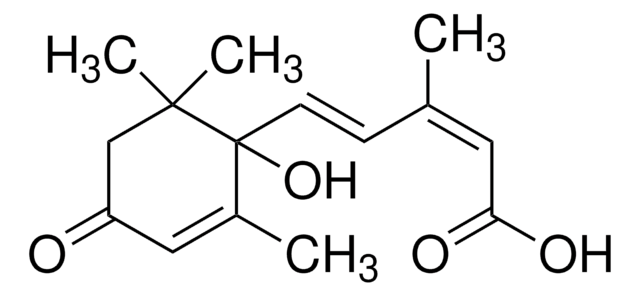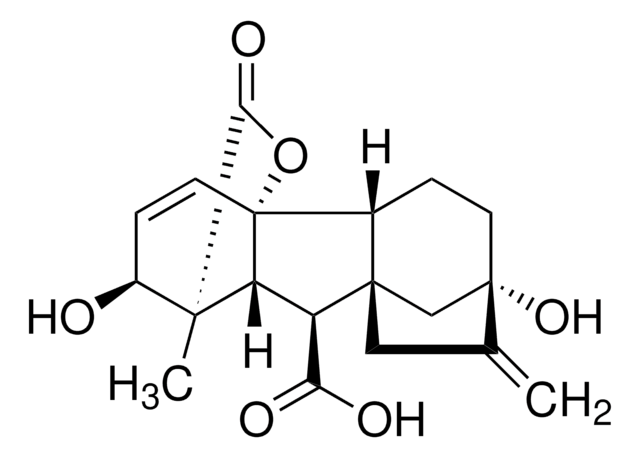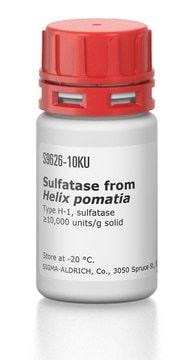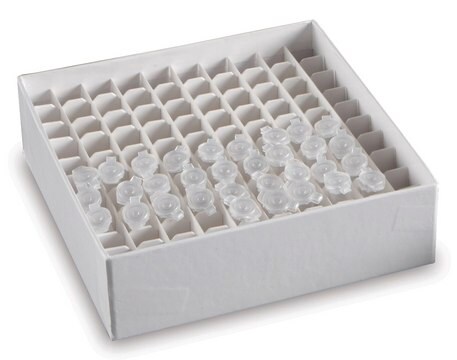PGR1
Abscisic Acid Immunoassay Detection Kit
Quantitate the levels of abscisic acid (ABA) in plant tissue
Synonym(s):
Abscisic Acid Detection Kit, Immunoassay Kit
Sign Into View Organizational & Contract Pricing
All Photos(1)
About This Item
UNSPSC Code:
10171502
NACRES:
NA.84
Recommended Products
General description
Abscisic Acid Immunoassay Detection Kit is used to quantitate the levels of abscisic acid (ABA) in plant tissues under normal and stress conditions. The plant growth regulator (PGR) enzyme immunoassay detection kit is a convenient test for the quantitative determination of plant hormones. The test utilizes monoclonal antibodies specific to the targeted hormones.
Application
Abscisic Acid Immunoassay Detection Kit has been used in measuring the levels of abscisic acid (ABA):
- in Sedum alfredii roots
- in Brassica juncea plant
- in Medicago truncatula and Arabidopsis thaliana seedlings
related product
Product No.
Description
Pricing
Storage Class Code
10 - Combustible liquids
Certificates of Analysis (COA)
Search for Certificates of Analysis (COA) by entering the products Lot/Batch Number. Lot and Batch Numbers can be found on a product’s label following the words ‘Lot’ or ‘Batch’.
Already Own This Product?
Find documentation for the products that you have recently purchased in the Document Library.
Mehar Fatma et al.
Frontiers in plant science, 7, 521-521 (2016-05-21)
The role of nitric oxide (NO) and sulfur (S) on stomatal responses and photosynthetic performance was studied in mustard (Brassica juncea L.) in presence or absence of salt stress. The combined application of 100 μM NO (as sodium nitroprusside) and
EXO modifies sucrose and trehalose responses and connects the extracellular carbon status to growth.
Janina Lisso et al.
Frontiers in plant science, 4, 219-219 (2013-06-28)
Plants have the capacity to adapt growth to changing environmental conditions. This implies the modulation of metabolism according to the availability of carbon (C). Particular interest in the response to the C availability is based on the increasing atmospheric levels
Micha Ofir et al.
Annals of botany, 99(2), 293-299 (2007-01-05)
Survival of many herbaceous species in Mediterranean habitats during the dry, hot summer depends on the induction of summer dormancy by changes in environmental conditions during the transition between the winter (growth) season to the summer (resting) season, i.e. longer
Chui E Wong et al.
The Plant journal : for cell and molecular biology, 57(5), 832-845 (2008-11-05)
The transition to flowering is characterized by a shift of the shoot apical meristem (SAM) from leaf production to the initiation of a floral meristem. The flowering process is of vital importance for agriculture, but the associated events or regulatory
G M Banowetz et al.
Hybridoma, 13(6), 537-541 (1994-12-01)
Monoclonal antibodies were prepared against the plant growth regulator abscisic acid (ABA) conjugated to keyhole limpet hemocyanin through C-4. One of these antibodies was characterized for use in a competition fluorescence enzyme-linked immunosorbent assay (F-ELISA). The antibody detected femtomole quantities
Our team of scientists has experience in all areas of research including Life Science, Material Science, Chemical Synthesis, Chromatography, Analytical and many others.
Contact Technical Service